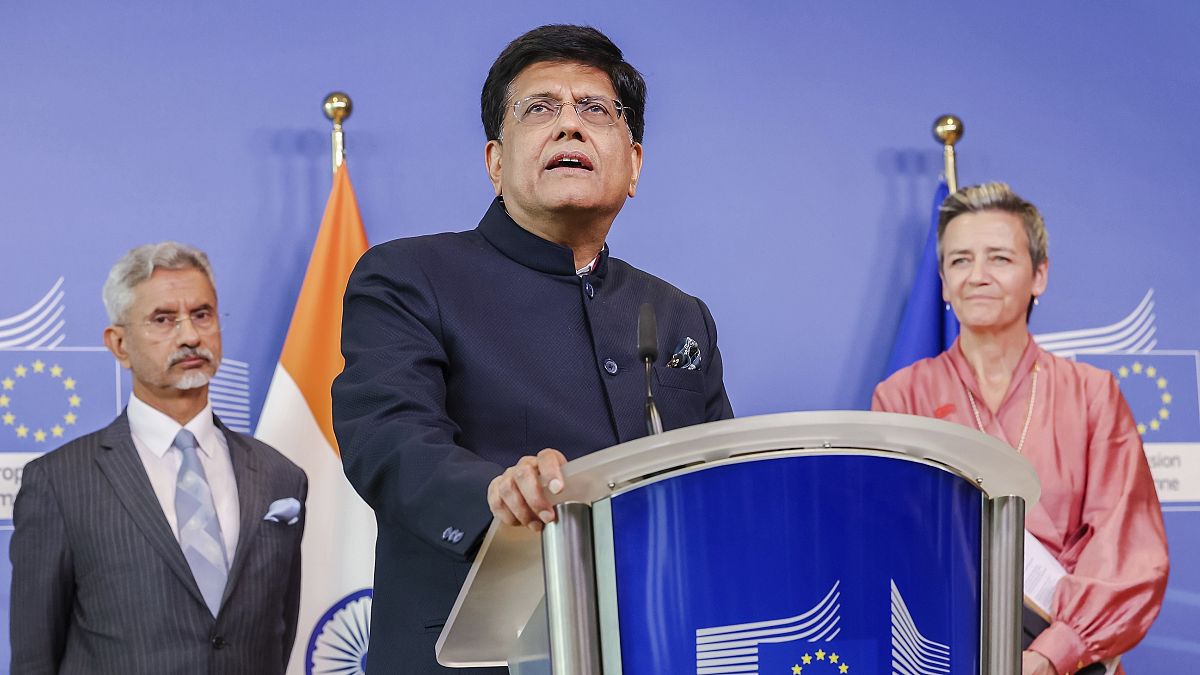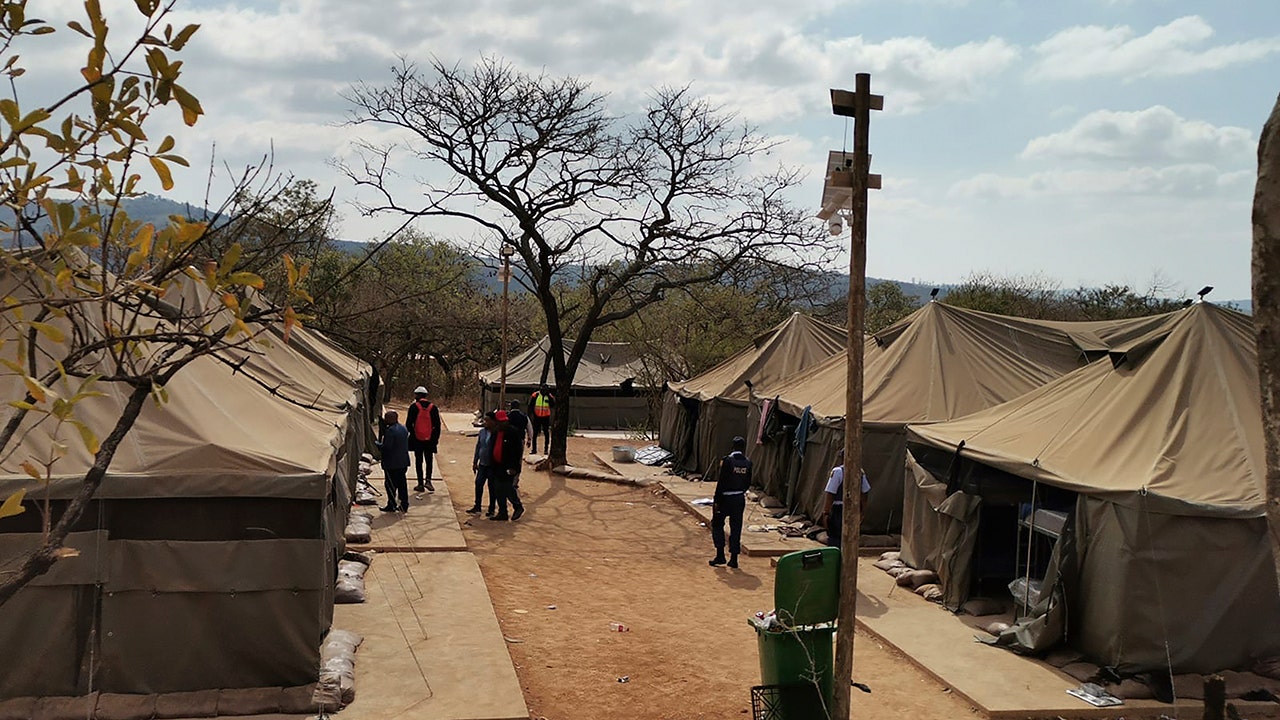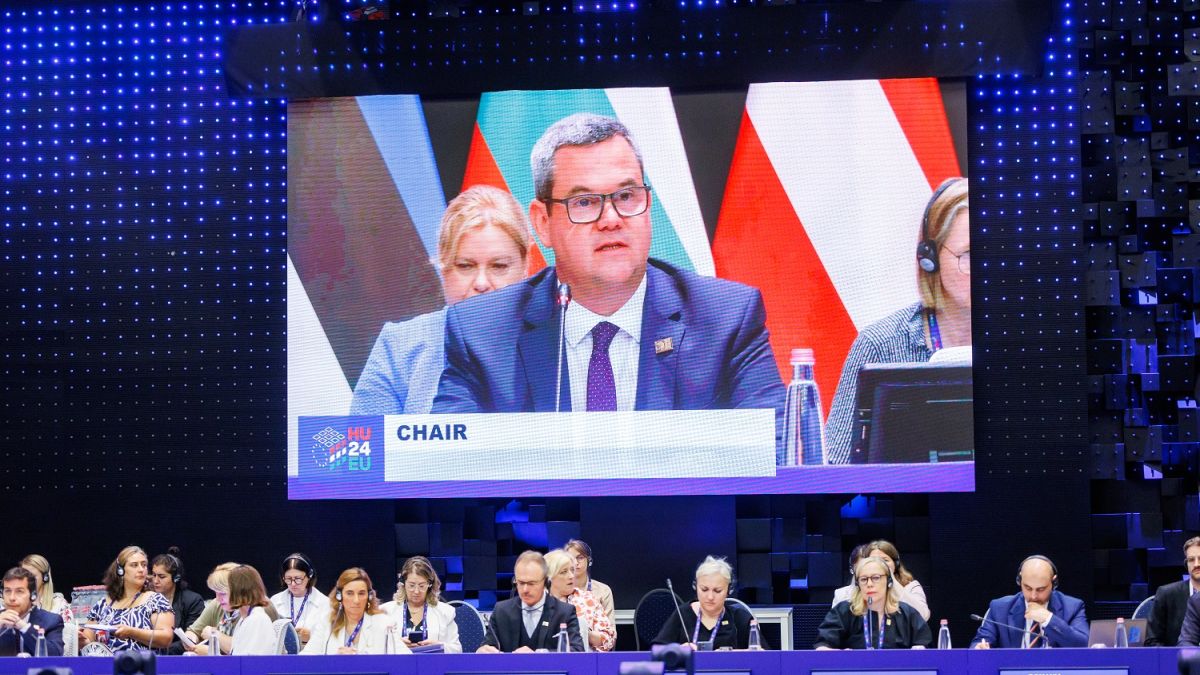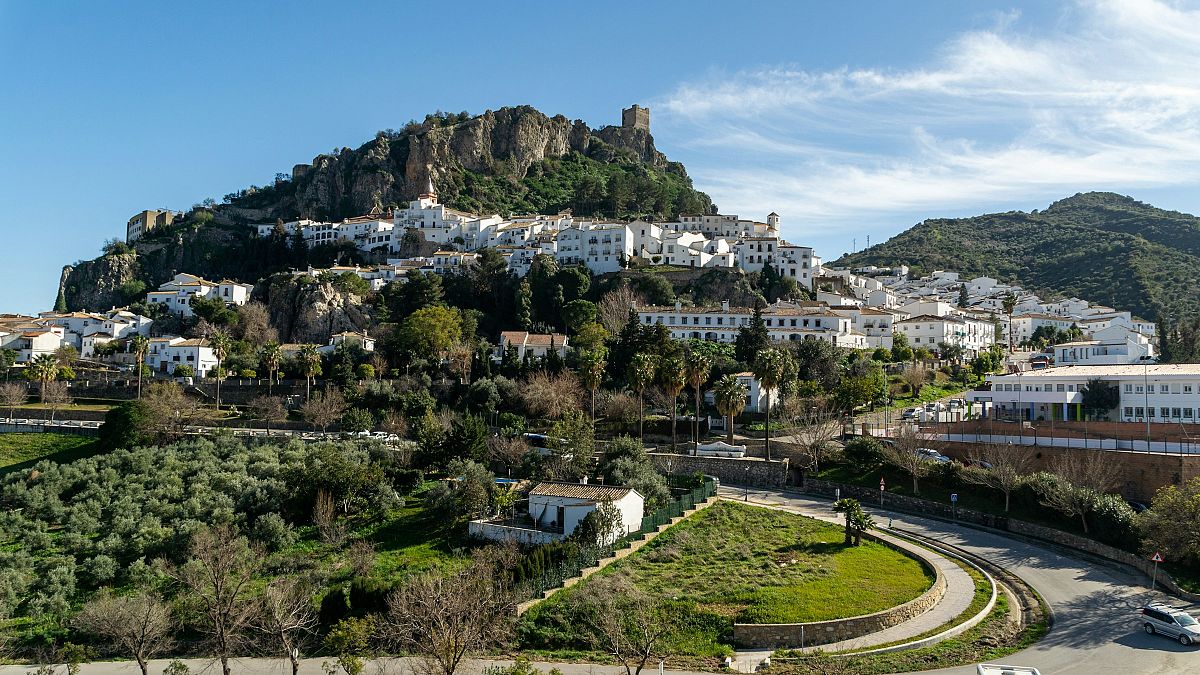World
India’s unrealistic demands sank WTO agri talks, claims commissioner

EU executive blamed India’s hard stance on food stockpiling for lack of breakthrough at World Trade Organisation’s biennial agriculture ministerial.
Despite an eleventh-hour attempt, the more than 1000 WTO delegates gathered in Abu Dhabi last week failed to agree to a major reform of the global trade rules for food subsidies.
“We did not progress on an agriculture package, to the detriment of most vulnerable countries, despite our pragmatic engagement. Divergences were too large to be solved,” said Commission Executive Vice-President Valdis Dombrovskis in a statement.
The bloc’s Commissioner for Agriculture Janusz Wojciechowski went further, saying the reason WTO members could not finally agree fell to “to unrealistic demands, in particular on the issue of public stockholding for food security purposes”.
Throughout the negotiations, India played hardball on the matter and led countries seeking to find a permanent solution to the so-called public stockholding (PSH).
This is a policy tool used to stockpile and distribute food, such as providing quantities of grain at subsidised prices to vulnerable population groups to lower the price of food for the most exposed.
Current WTO rules set a limit to the percentage of a country’s production that can be used for this form of agricultural subsidy – a threshold that India and other less-developed countries want to see raised.
Experts backing these countries argue that stricter WTO rules on PHS will not allow governments to build and manage public food reserves.
Such stockpiling is seen as running counter to free trade principles, however, particularly during crises, and has always been a red line in EU trade talks involving global food security.
“While public stockholding programs may be essential to contribute to domestic food security, if implemented as support to producers’ prices, they may negatively affect agricultural trade and impact food security of other countries,” the Commission said in a note.
The topic received renewed attention after Russia’s full-scale invasion of Ukraine which severely impacted food commodity markets.
In the aftermath of Ukraine’s war, the EU and other Western countries stressed the need for trade flow to continue for all stocks, while India and its allies defended their right to safeguard food stocks for their populations.
During the talks, India argued that a permanent solution on food stockpiling has been pending for 11 years since 2013.
A source close to the negotiations told Euronews that the most likely outcome at the beginning of the talks was a commitment to a new deadline for a PHS agreement without any substantial decision on the matter.
Contrary to expectations India’s Trade Minister Piyush Goyal stood firm on its negotiating mandate and refused to compromise on the matter.
The issue was sensitive for the Indian government as country’s farmers have been protesting for more than 12 months and Indian premier Narendra Modi is seeking re-election in a national poll slated for this April and May.

World
Celine Dion Makes Triumphant Comeback at Paris Olympics Opening Ceremony — Watch Full Performance

ad
World
95 Libyan nationals arrested in South Africa at suspected secret military training camp

South African police arrested 95 Libyan nationals in a raid on a suspected secret military training camp on Friday and authorities said they were investigating whether there were more illegal bases in other parts of the country.
The camp was discovered at a farm in White River in the Mpumalanga province, about 360 kilometers (220 miles) northeast of Johannesburg, police said.
ELEPHANTS KILL TOURIST IN SOUTH AFRICA AFTER HE TRIED TO GET CLOSE TO TAKE PICTURES
National police spokesperson Athlenda Mathe said in a post on the social media site X that the Libyans stated they had entered the country on study visas to train as security guards, but police investigations suggest they have received military training.
The Newzroom Afrika TV news channel broadcast pictures of the site of the arrests, showing a military-style camp with large green and khaki tents set up in a row. Dozens of men were seen lining up as they were arrested. They were wearing civilian clothing.
Local government official Jackie Macie said investigations were ongoing and the owner of the farm would be questioned. He said authorities received information that there were similar secret camps near two other towns in Mpumalanga province.
A camp where 95 Libyan nationals were arrested on suspicion of running an illegal military camp are seen lining up after their arrest on Friday, July 26, 2024 in White River, South Africa. Police say that 95 Libyan nationals were arrested on suspicion of receiving training at a secret military camp in the north of the country. (AP Photo/Bulelwa Maphanga)
The province borders neighboring countries Mozambique and Swaziland and is an area of concern for South African authorities with regards to illegal immigration.
Police and authorities have not said whether the camps are suspected of being connected to a particular group or conflict.
Macie said investigations would establish if there was a network of camps in South Africa and show “why they are here doing military training in our country.”
Police said the men may be linked to crimes reported in communities close to the farm in recent months.
“We have serious cases which have been opened with the police, including cases of rape and armed robberies, which complainants claim were committed by unknown foreigners who seem to be of Asian descent,” said police spokesman Donald Mdhluli.
“We take what we have found here today very seriously because we don’t know who was training them, what were they being trained for and why that training is happening here in South Africa. It may be a threat not only to South Africa but also to the entire southern Africa region.”
Police said the operation to arrest the Libyans and close down the camp began two days ago. Macie said the Libyan nationals had been in the country since at least April.
“The 95 individuals taken into custody are all Libyan nationals and are currently being questioned by the relevant authorities,” Mpumalanga acting provincial police commissioner Maj. Gen. Zeph Mkhwanazi said in a statement.
Mdhluli, the police spokesman, said the country’s security regulator had confirmed that the kind of training that appears to have been taking place at the camp was well beyond the scope of training for security guards.
“The kind of equipment we found here shows that there was intense military training taking place here. This was basically a military base.”
World
Passengers face long, uncertain wait at stations amid rail disruption

A deliberate fire in a signal box about 60 km south of Lille caused the disruption on the northern high-speed line, with traffic halted around 5 a.m. local time on Friday.
Travel was severely disrupted in Lille on Friday, one of the stations affected by the sabotage that hit major French rail lines ahead of the Paris Olympics opening ceremony.
Many passengers waited with hope that soon turned to resignation.
“We’ve been waiting since 10:38 a.m. for the 11:38 a.m. train, and now we’re just waiting for it to arrive at 2:08 p.m.,” said Delphine, one of the stranded passengers.
“It’s still quite a delay, and we’ll be even later since we’re on a secondary route. I work in Avignon at 9 p.m., so it’s going to be very, very tight. We have a concert tonight — will it even happen? This is all very confusing, and we don’t understand what’s going on.”
For one traveller, this was a rough start to the holidays. “The worst case would be if the train is cancelled entirely and we have to buy new tickets for next week. It would shorten our already brief vacation. That would be a huge problem,” said Hippolyte.
When asked if he had been informed of the delays, Hippolyte said he received the notification just before departure.
“At around 10 a.m. this morning, we were told we were an hour late and would be leaving at 1 p.m.”
“It just keeps getting later as the day goes on. Every time we approach the new departure time, it gets pushed back another hour and a half, or half an hour each time.”
A deliberate fire in a signal box about 60 km south of Lille caused the disruption on the northern high-speed line. Traffic was halted around 5 a.m. on Friday.
The recent acts of sabotage on the rail network highlight that the Olympic Games are turning France into a prime target.
The attack disrupted the transport system on the opening day of the Games, causing delays of up to two hours or even cancellations that affected hundreds of thousands of passengers nationwide.
Authorities in Paris have said they are deploying substantial human resources to counter any threats and to ensure the safety of the events.
-

 World1 week ago
World1 week agoOne dead after car crashes into restaurant in Paris
-

 Midwest1 week ago
Midwest1 week agoMichigan rep posts video response to Stephen Colbert's joke about his RNC speech: 'Touché'
-

 News1 week ago
News1 week agoVideo: Young Republicans on Why Their Party Isn’t Reaching Gen Z (And What They Can Do About It)
-

 Movie Reviews1 week ago
Movie Reviews1 week agoMovie Review: A new generation drives into the storm in rousing ‘Twisters’
-

 News1 week ago
News1 week agoIn Milwaukee, Black Voters Struggle to Find a Home With Either Party
-

 Politics1 week ago
Politics1 week agoFox News Politics: The Call is Coming from Inside the House
-

 News1 week ago
News1 week agoVideo: J.D. Vance Accepts Vice-Presidential Nomination
-

 World1 week ago
World1 week agoTrump to take RNC stage for first speech since assassination attempt



















